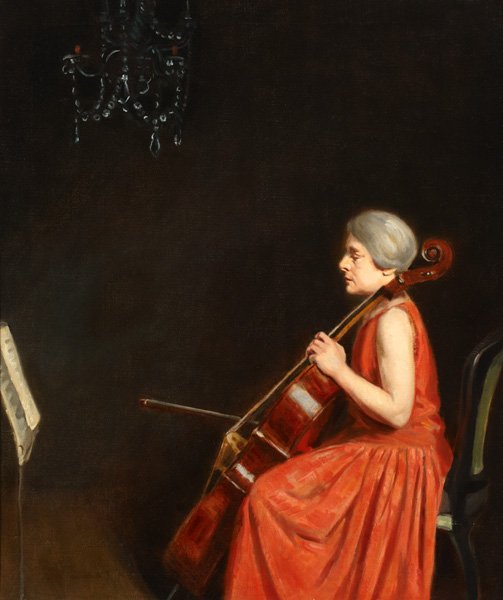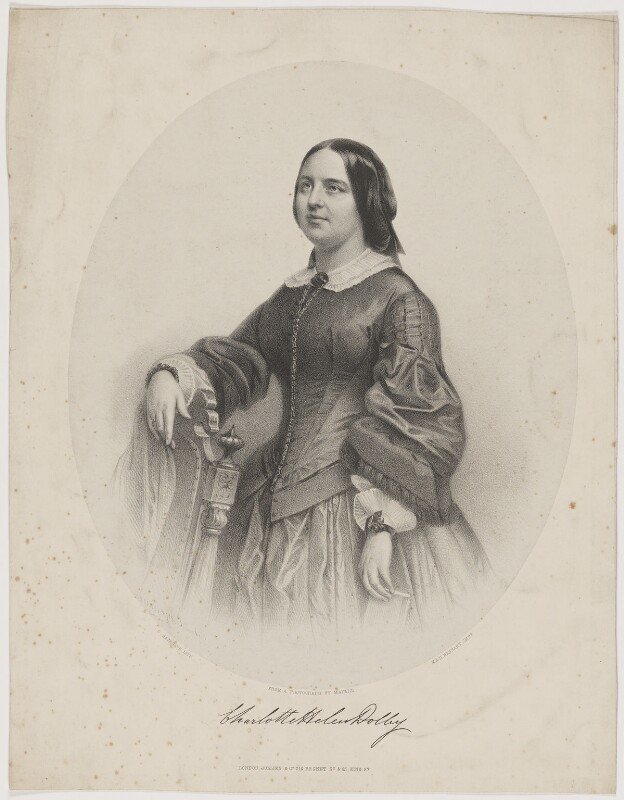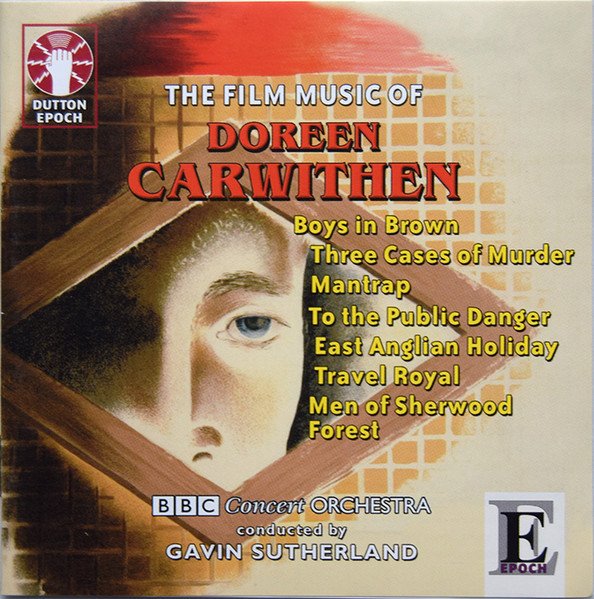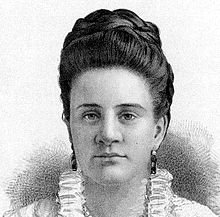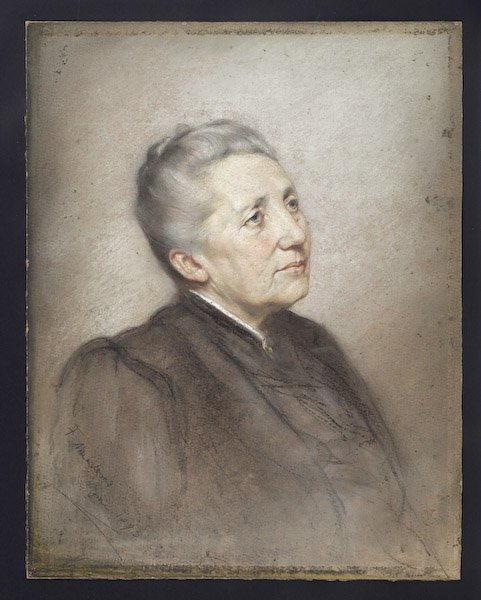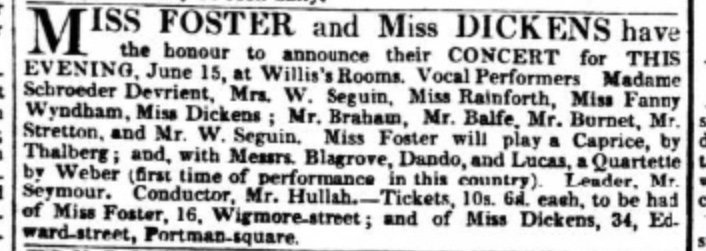A Winter Twilight: Angelina Weld Grimké
“A silence slipping around like death,
Yet chased by a whisper, a sigh,
a breath; One group of trees, lean,
naked and cold,
Inking their cress ‘gainst a
sky green-gold;
One path that knows where the
corn flowers were;
Lonely, apart, unyielding, one fir;
And over it softly leaning down,
One star that I loved ere the
fields went brown”
Phantasies: Emma Lazarus
“(After Robert Schumann).
I. Evening.
Rest, beauty, stillness: not a waif of a cloud
From gray-blue east sheer to the yellow west-
No film of mist the utmost slopes to shroud.
The earth lies grace, by quiet airs caressed,
And shepherdeth her shadows, but each stream,
Free to the sky, is by that glow possessed,
And traileth with the splendors of a dream
Athwart the dusky land. Uplift thine eyes!
Unbroken by a vapor or a gleam,
The vast clear reach of mild, wan twilight skies.
But look again, and lo, the evening star!
Against the pale tints black the slim elms rise,
The earth exhales sweet odors nigh and far,
And from the heavens fine influences fall.
Familiar things stand not for what they are:
What they suggest, foreshadow, or recall
The spirit is alert to apprehend,
Imparting somewhat of herself to all.
Labor and thought and care are at an end:
The soul is filled with gracious reveries,
And with her mood soft sounds and colors blend;
For simplest sounds ring forth like melodies
In this weird-lighted air-the monotone
Of some far bell, the distant farmyard cries,
A barking dog, the thin, persistent drone
Of crickets, and the lessening call of birds.
The apparition of yon star alone
Breaks on the sense like music. Beyond word
The peace that floods the soul, for night is here,
And Beauty still is guide and harbinger.
II. Aspiration.
Dark lies the earth, and bright with worlds the sky:
That soft, large, lustrous star, that first outshone,
Still holds us spelled with potent sorcery.
Dilating, shrinking, lightening, it hath won
Our spirit with its strange strong influence,
And sways it as the tides beneath the moon.
What impulse this, o’ermastering heart and sense?
Exalted, thrilled, the freed soul fain would soar
Unto that point of shining prominence,
Craving new fields and some unheard-of shore,
Yea, all the heavens, for her activity,
To mount with daring flight, to hover o’er
Low hills of earth, flat meadows, level sea,
And earthly joy and trouble. In this hour
Of waning light and sound, of mystery,
Of shadowed love and beauty-veiled power,
She feels her wings: she yearns to grasp her own,
Knowing the utmost good to be her dower.
A dream! a dream! for at a touch ‘t is gone.
O mocking spirit! thy mere fools are we,
Unto the depths from heights celestial thrown.
From these blind gropings toward reality,
This thirst for truth, this most pathetic need
Of something to uplift, to justify,
To help and comfort while we faint and bleed,
May we not draw, wrung from the last despair,
Some argument of hope, some blessed creed,
That we can trust the faith which whispers prayer,
The vanishings, the ecstasy, the gleam,
The nameless aspiration, and the dream?
III. Wherefore?
Deep languor overcometh mind and frame:
A listless, drowsy, utter weariness,
A trance wherein no thought finds speech or name,
The overstrained spirit doth possess.
She sinks with drooping wing-poor unfledged bird,
That fain had flown!-in fluttering breathlessness.
To what end those high hopes that wildly stirred
The beating heart with aspirations vain?
Why proffer prayers unanswered and unheard
To blank, deaf heavens that will not heed her pain?
Where lead these lofty, soaring tendencies,
That leap and fly and poise, to fall again,
Yet seem to link her with the utmost skies?
What mean these clinging loves that bind to earth,
And claim her with beseeching, wistful eyes?
This little resting-place ‘twixt death and birth,
Why is it fretted with the ceaseless flow
Of flood and ebb, with overgrowth and dearth,
And vext with dreams, and clouded with strange woe?
Ah! she is tired of thought, she yearns for peace,
Seeing all things one equal end must know.
Wherefore this tangle of perplexities,
The trouble or the joy? the weary maze
Of narrow fears and hopes that may not cease?
A chill falls on her from the skyey ways,
Black with the night-tide, where is none to hear
The ancient cry, the Wherefore of our days.
IV. Fancies.
The ceaseless whirr of crickets fills the ear
From underneath each hedge and bush and tree,
Deep in the dew-drenched grasses everywhere.
The simple sound dispels the fantasy
Of gloom and terror gathering round the mind.
It seems a pleasant thing to breathe, to be,
To hear the many-voiced, soft summer wind
Lisp through the dark thick leafage overhead-
To see the rosy half-moon soar behind
The black slim-branching elms. Sad thoughts have fled,
Trouble and doubt, and now strange reveries
And odd caprices fill us in their stead.
From yonder broken disk the redness dies,
Like gold fruit through the leaves the half-sphere gleams,
Then over the hoar tree-tops climbs the skies,
Blanched ever more and more, until it beams
Whiter than crystal. Like a scroll unfurled,
And shadowy as a landscape seen in dreams,
Reveals itself the sleeping, quiet world,
Painted in tender grays and whites subdued-
The speckled stream with flakes of light impearled,
The wide, soft meadow and the massive wood.
Naught is too wild for our credulity
In this weird hour: our finest dreams hold good.
Quaint elves and frolic flower-sprites we see,
And fairies weaving rings of gossamer,
And angels floating through the filmy air.
V. In the Night.
Let us go in: the air is dank and chill
With dewy midnight, and the moon rides high
O’er ghostly fields, pale stream, and spectral hill.
This hour the dawn seems farthest from the sky
So weary long the space that lies between
That sacred joy and this dark mystery
Of earth and heaven: no glimmering is seen,
In the star-sprinkled east, of coming day,
Nor, westward, of the splendor that hath been.
Strange fears beset us, nameless terrors sway
The brooding soul, that hungers for her rest,
Out worn with changing moods, vain hopes’ delay,
With conscious thought o’erburdened and oppressed.
The mystery and the shadow wax too deep;
She longs to merge both sense and thought in sleep.
VI. Faerie.
From the oped lattice glance once more abroad
While the ethereal moontide bathes with light
Hill, stream, and garden, and white-winding road.
All gracious myths born of the shadowy night
Recur, and hover in fantastic guise,
Airy and vague, before the drowsy sight.
On yonder soft gray hill Endymion lies
In rosy slumber, and the moonlit air
Breathes kisses on his cheeks and lips and eyes.
’Twixt bush and bush gleam flower-white limbs, left bare,
Of huntress-nymphs, and flying raiment thin,
Vanishing faces, and bright floating hair.
The quaint midsummer fairies and their kin,
Gnomes, elves, and trolls, on blossom, branch, and grass
Gambol and dance, and winding out and in
Leave circles of spun dew where’er they pass.
Through the blue ether the freed Ariel flies;
Enchantment holds the air; a swarming mass
Of myriad dusky, gold-winged dreams arise,
Throng toward the gates of sense, and so possess
The soul, and lull it to forgetfulness.
VII. Confused Dreams.
O strange, dim other-world revealed to us,
Beginning there where ends reality,
Lying ‘twixt life and death, and populous
With souls from either sphere! now enter we
Thy twisted paths. Barred is the silver gate,
But the wild-carven doors of ivory
Spring noiselessly apart: between them straight
Flies forth a cloud of nameless shadowy things,
With harpies, imps, and monsters, small and great,
Blurring the thick air with darkening wings.
All humors of the blood and brain take shape,
And fright us with our own imaginings.
A trouble weighs upon us: no escape
From this unnatural region can there be.
Fixed eyes stare on us, wide mouths grin and gape,
Familiar faces out of reach we see.
Fain would we scream, to shatter with a cry
The tangled woof of hideous fantasy,
When, lo! the air grows clear, a soft fair sky
Shines over head: sharp pain dissolves in peace;
Beneath the silver arc”
The Little Rose Is Dust, My Dear: Grace Hazard Conkling
“The little rose is dust, my dear;
The elfin wind is gone
That sang a song of silver words
And cooled our hearts with dawn.
And what is left to hope, my dear,
Or what is left to say?
The rose, the little wind and you
Have gone so far away.”
Dandelions: Frances Ellen Watkins Harper
“Welcome children of the Spring,
In your garbs of green and gold,
Lifting up your sun-crowned heads
On the verdant plain and wold.
As a bright and joyous troop
From the breast of earth ye came
Fair and lovely are your cheeks,
With sun-kisses all aflame.
In the dusty streets and lanes,
Where the lowly children play,
There as gentle friends ye smile,
Making brighter life’s highway
Dewdrops and the morning sun,
Weave your garments fair and bright,
And we welcome you to-day
As the children of the light.
Children of the earth and sun.
We are slow to understand
All the richness of the gifts
Flowing from our Father’s hand.”
Smothered Fires: Georgia Douglas Johnson
“A woman with a burning flame
Deep covered through the years
With ashes. Ah! she hid it deep,
And smothered it with tears.
Sometimes a baleful light would rise
From out the dusky bed,
And then the woman hushed it quick
To slumber on, as dead.
At last the weary war was done
The tapers were alight,
And with a sigh of victory
She breathed a soft—good-night!”
The Helmsman: H.D.
“O be swift—
we have always known you wanted us.
We fled inland with our flocks,
we pastured them in hollows,
cut off from the wind
and the salt track of the marsh.
We worshipped inland—
we stepped past wood-flowers,
we forgot your tang,
we brushed wood-grass.
We wandered from pine-hills
through oak and scrub-oak tangles,
we broke hyssop and bramble,
we caught flower and new bramble-fruit
in our hair: we laughed
as each branch whipped back,
we tore our feet in half buried rocks
and knotted roots and acorn-cups.
We forgot—we worshipped,
we parted green from green,
we sought further thickets,
we dipped our ankles
through leaf-mould and earth,
and wood and wood-bank enchanted us—
and the feel of the clefts in the bark,
and the slope between tree and tree—
and a slender path strung field to field
and wood to wood
and hill to hill
and the forest after it.
We forgot—for a moment
tree-resin, tree-bark,
sweat of a torn branch
were sweet to the taste.
We were enchanted with the fields,
the tufts of coarse grass
in the shorter grass—
we loved all this.
But now, our boat climbs—hesitates—drops—
climbs—hesitates—crawls back—
climbs—hesitates—
O be swift—
we have always known you wanted us.”
One Art: Elizabeth Bishop
“The art of losing isn’t hard to master;
so many things seem filled with the intent
to be lost that their loss is no disaster.
Lose something every day. Accept the fluster
of lost door keys, the hour badly spent.
The art of losing isn’t hard to master.
Then practice losing farther, losing faster:
places, and names, and where it was you meant
to travel. None of these will bring disaster.
I lost my mother’s watch. And look! my last, or
next-to-last, of three loved houses went.
The art of losing isn’t hard to master.
I lost two cities, lovely ones. And, vaster,
some realms I owned, two rivers, a continent.
I miss them, but it wasn’t a disaster.
—Even losing you (the joking voice, a gesture
I love) I shan’t have lied. It’s evident
the art of losing’s not too hard to master
though it may look like (Write it!) like disaster.”
Who Said It Was Simple: Audre Lorde
“There are so many roots to the tree of anger
that sometimes the branches shatter
before they bear.
Sitting in Nedicks
the women rally before they march
discussing the problematic girls
they hire to make them free.
An almost white counterman passes
a waiting brother to serve them first
and the ladies neither notice nor reject
the slighter pleasures of their slavery.
But I who am bound by my mirror
as well as my bed
see causes in colour
as well as sex
and sit here wondering
which me will survive
all these liberations.”
A Colored Print by Shokei: Amy Lowell
“ It winds along the face of a cliff
This path which I long to explore,
And over it dashes a waterfall,
And the air is full of the roar
And the thunderous voice of waters which sweep
In a silver torrent over some steep.
It clears the path with a mighty bound
And tumbles below and away,
And the trees and the bushes which grow in the rocks
Are wet with its jewelled spray;
The air is misty and heavy with sound,
And small, wet wildflowers star the ground.
Oh! The dampness is very good to smell,
And the path is soft to tread,
And beyond the fall it winds up and on,
While little streamlets thread
Their own meandering way down the hill
Each singing its own little song, until
I forget that ‘t is only a pictured path,
And I hear the water and wind,
And look through the mist, and strain my eyes
To see what there is behind;
For it must lead to a happy land,
This little path by a waterfall spanned.”
The Mothering Blackness: Maya Angelou
“She came home running
back to the mothering blackness
deep in the smothering blackness
white tears icicle gold plains of her face
She came home running
She came down creeping
here to the black arms waiting
now to the warm heart waiting
rime of alien dreams befrosts her rich brown face
She came down creeping
She came home blameless
black yet as Hagar’s daughter
tall as was Sheba’s daughter
threats of northern winds die on the desert’s face
She came home blameless”
Cartographies of Silence: Adrienne Rich
“1.
A conversation begins
with a lie. and each
speaker of the so-called common language feels
the ice-floe split, the drift apart
as if powerless, as if up against
a force of nature
A poem can being
with a lie. And be torn up.
A conversation has other laws
recharges itself with its own
false energy, Cannot be torn
up. Infiltrates our blood. Repeats itself.
Inscribes with its unreturning stylus
the isolation it denies.
2.
The classical music station
playing hour upon hour in the apartment
the picking up and picking up
and again picking up the telephone
The syllables uttering
the old script over and over
The loneliness of the liar
living in the formal network of the lie
twisting the dials to drown the terror
beneath the unsaid word
3.
The technology of silence
The rituals, etiquette
the blurring of terms
silence not absence
of words or music or even
raw sounds
Silence can be a plan
rigorously executed
the blueprint of a life
It is a presence
it has a history a form
Do not confuse it
with any kind of absence
4.
How calm, how inoffensive these words
begin to seem to me
though begun in grief and anger
Can I break through this film of the abstract
without wounding myself or you
there is enough pain here
This is why the classical of the jazz music station plays?
to give a ground of meaning to our pain?
5.
The silence strips bare:
In Dreyer’s Passion of Joan
Falconetti’s face, hair shorn, a great geography
mutely surveyed by the camera
If there were a poetry where this could happen
not as blank space or as words
stretched like skin over meaningsof a night through which two people
have talked till dawn.
6.
The scream
of an illegitimate voice
It has ceased to hear itself, therefore
it asks itself
How do I exist?
This was the silence I wanted to break in you
I had questions but you would not answer
I had answers but you could not use them
The is useless to you and perhaps to others
7.
It was an old theme even for me:
Language cannot do everything-
chalk it on the walls where the dead poets
lie in their mausoleums
f at the will of the poet the poem
could turn into a thing
a granite flank laid bare, a lifted head
alight with dew
If it could simply look you in the face
with naked eyeballs, not letting you turn
till you, and I who long to make this thing,
were finally clarified together in its stare
8.
No. Let me have this dust,
these pale clouds dourly lingering, these words
moving with ferocious accuracy
like the blind child’s fingers
or the newborn infant’s mouth
violent with hunger
No one can give me, I have long ago
taken this method
whether of bran pouring from the loose-woven sack
or of the bunsen-flame turned low and blue
If from time to time I envy
the pure annunciation to the eye
the visio beatifica
if from time to time I long to turn
like the Eleusinian hierophant
holding up a single ear of grain
for the return to the concrete and everlasting world
what in fact I keep choosing
are these words, these whispers, conversations
from which time after time the truth breaks moist and green.”
City Trees: Edna St Vincent Millay
“The trees along this city street,
Save for the traffic and the trains,
Would make a sound as thin and sweet
As trees in country lanes.
And people standing in their shade
Out of a shower, undoubtedly
Would hear such music as is made
Upon a country tree.
Oh, little leaves that are so dumb
Against the shrieking city air,
I watch you when the wind has come,—
I know what sound is there.”
ISAIAH lxiii. 1-8: Phillis Wheatley
“SAY, heav’nly muse, what king or mighty God,
That moves sublime from Idumea’s road?
In Bosrah’s dies, with martial glories join’d,
His purple vesture waves upon the wind.
Why thus enrob’d delights he to appear
In the dread image of the Pow’r of war?
Compres’d in wrath the swelling wine-press groan’d,
It bled, and pour’d the gushing purple round.
“Mine was the act,” th’ Almighty Saviour said,
And shook the dazzling glories of his head,
“When all forsook I trod the press alone,
“And conquer’d by omnipotence my own;
“For man’s release sustain’d the pond’rous load,
“For man the wrath of an immortal God:
“To execute th’ Eternal’s dread command
“My soul I sacrific’d with willing hand;
“Sinless I stood before the avenging frown,
“Atoning thus for vices not my own.”
His eye the ample field of battle round
Survey’d, but no created succours found;
His own omnipotence sustain’d the right,
His vengeance sunk the haughty foes in night;
Beneath his feet the prostrate troops were spread,
And round him lay the dying, and the dead.
Great God, what light’ning flashes from thine eyes?
What pow’r withstands if thou indignant rise?
Against thy Zion though her foes may rage,
And all their cunning, all their strength engage,
Yet she serenely on thy bosom lies,
Smiles at their arts, and all their force defies.”
A precious — mouldering pleasure — 'tis —: Emily Dickinson
“A precious — mouldering pleasure — ‘tis —
To meet an Antique Book —
In just the Dress his Century wore —
A privilege — I think —
His venerable Hand to take —
And warming in our own —
A passage back — or two — to make —
To Times when he — was young —
His quaint opinions — to inspect —
His thought to ascertain
On Themes concern our mutual mind —
The Literature of Man —
What interested Scholars — most —
What Competitions ran —
When Plato — was a Certainty —
And Sophocles — a Man —
When Sappho — was a living Girl —
And Beatrice wore
The Gown that Dante — deified —
Facts Centuries before
He traverses — familiar —
As One should come to Town —
And tell you all your Dreams — were true —
He lived — where Dreams were born —
His presence is Enchantment —
You beg him not to go —
Old Volumes shake their Vellum Heads
And tantalize — just so —”
Men I'm Not Married To: Dorothy Parker
“No matter where my route may lie,
No matter whither I repair,
In brief—no matter how or why
Or when I go, the boys are there.
On lane and byways, street and square,
On alley, path and avenue,
They seem to spring up everywhere—
The men I am not married to.
I watch them as they pass me by;
At each in wonderment I stare,
And, “but for heaven’s grace,” I cry,
“There goes the guy whose name I’d wear!”
They represent no species rare,
They walk and talk as others do;
They’re fair to see—but only fair—
The men I am not married to.
I’m sure that to a mother’s eye
Is each potentially a bear.
But though at home they rank ace-high,
No change of heart could I declare.
Yet worry silvers not their hair;
They deck them not with sprigs of rue.
It’s curious how they do not care—
The men I am not married to.”
I Have Loved Hours At Sea: Sara Teasdale
“ I have loved hours at sea, gray cities,
The fragile secret of a flower,
Music, the making of a poem
That gave me heaven for an hour;
First stars above a snowy hill,
Voices of people kindly and wise,
And the great look of love, long hidden,
Found at last in meeting eyes.
I have loved much and been loved deeply—
Oh when my spirit’s fire burns low,
Leave me the darkness and the stillness,
I shall be tired and glad to go.”
The Cat's Song: Marge Piercy
“Mine, says the cat, putting out his paw of darkness.
My lover, my friend, my slave, my toy, says
the cat making on your chest his gesture of drawing
milk from his mother’s forgotten breasts.
Let us walk in the woods, says the cat.
I’ll teach you to read the tabloid of scents,
to fade into shadow, wait like a trap, to hunt.
Now I lay this plump warm mouse on your mat.
You feed me, I try to feed you, we are friends,
says the cat, although I am more equal than you.
Can you leap twenty times the height of your body?
Can you run up and down trees? Jump between roofs?
Let us rub our bodies together and talk of touch.
My emotions are pure as salt crystals and as hard.
My lusts glow like my eyes. I sing to you in the mornings
walking round and round your bed and into your face.
Come I will teach you to dance as naturally
as falling asleep and waking and stretching long, long.
I speak greed with my paws and fear with my whiskers.
Envy lashes my tail. Love speaks me entire, a word
of fur. I will teach you to be still as an egg
and to slip like the ghost of wind through the grass.”
In Reference to her Children, 23 June 1659: Anne Bradstreet
“I had eight birds hatcht in one nest,
Four Cocks were there, and Hens the rest.
I nurst them up with pain and care,
No cost nor labour did I spare
Till at the last they felt their wing,
Mounted the Trees and learned to sing.
Chief of the Brood then took his flight
To Regions far and left me quite.
My mournful chirps I after send
Till he return, or I do end.
Leave not thy nest, thy Dame and Sire,
Fly back and sing amidst this Quire.
My second bird did take her flight
And with her mate flew out of sight.
Southward they both their course did bend,
And Seasons twain they there did spend,
Till after blown by Southern gales
They Norward steer’d with filled sails.
A prettier bird was no where seen,
Along the Beach, among the treen.
I have a third of colour white
On whom I plac’d no small delight,
Coupled with mate loving and true,
Hath also bid her Dame adieu.
And where Aurora first appears,
She now hath percht to spend her years.
One to the Academy flew
To chat among that learned crew.
Ambition moves still in his breast
That he might chant above the rest,
Striving for more than to do well,
That nightingales he might excell.
My fifth, whose down is yet scarce gone,
Is ‘mongst the shrubs and bushes flown
And as his wings increase in strength
On higher boughs he’ll perch at length.
My other three still with me nest
Until they’re grown, then as the rest,
Or here or there, they’ll take their flight,
As is ordain’d, so shall they light.
If birds could weep, then would my tears
Let others know what are my fears
Lest this my brood some harm should catch
And be surpris’d for want of watch
Whilst pecking corn and void of care
They fall un’wares in Fowler’s snare;
Or whilst on trees they sit and sing
Some untoward boy at them do fling,
Or whilst allur’d with bell and glass
The net be spread and caught, alas;
Or lest by Lime-twigs they be foil’d;
Or by some greedy hawks be spoil’d.
O would, my young, ye saw my breast
And knew what thoughts there sadly rest.
Great was my pain when I you bred,
Great was my care when I you fed.
Long did I keep you soft and warm
And with my wings kept off all harm.
My cares are more, and fears, than ever,
My throbs such now as ‘fore were never.
Alas, my birds, you wisdom want
Of perils you are ignorant.
Oft times in grass, on trees, in flight,
Sore accidents on you may light.
O to your safety have an eye,
So happy may you live and die.
Mean while, my days in tunes I’ll spend
Till my weak lays with me shall end.
In shady woods I’ll sit and sing
And things that past, to mind I’ll bring.
Once young and pleasant, as are you,
But former toys (no joys) adieu!
My age I will not once lament
But sing, my time so near is spent,
And from the top bough take my flight
Into a country beyond sight
Where old ones instantly grow young
And there with seraphims set song.
No seasons cold, nor storms they see
But spring lasts to eternity.
When each of you shall in your nest
Among your young ones take your rest,
In chirping languages oft them tell
You had a Dame that lov’d you well,
That did what could be done for young
And nurst you up till you were strong
And ‘fore she once would let you fly
She shew’d you joy and misery,
Taught what was good, and what was ill,
What would save life, and what would kill.
Thus gone, amongst you I may live,
And dead, yet speak and counsel give.
Farewell, my birds, farewell, adieu,
I happy am, if well with you. ”
To A New-Born Baby Girl: Grace Hazard Conkling
“And did thy sapphire shallop slip
Its moorings suddenly, to dip
Adown the clear, ethereal sea
From star to star, all silently?
What tenderness of archangels
In silver, thrilling syllables
Pursued thee, or what dulcet hymn
Low-chanted by the cherubim?
And thou departing must have heard
The holy Mary’s farewell word,
Who with deep eyes and wistful smile
Remembered Earth a little while.
Now from the coasts of morning pale
Comes safe to port thy tiny sail.
Now have we seen by early sun,
Thy miracle of life begun.
All breathing and aware thou art,
With beauty templed in thy heart
To let thee recognize the thrill
Of wings along far azure hill,
And hear within the hollow sky
Thy friends the angels rushing by.
These shall recall that thou hast known
Their distant country as thine own,
To spare thee word of vales and streams,
And publish heaven through thy dreams.
The human accents of the breeze
Through swaying star-acquainted trees
Shall seem a voice heard earlier,
Her voice, the adoring sigh of her,
When thou amid rosy cherub-play
Didst hear her call thee, far away,
And dream in very Paradise
The worship of thy mother’s eyes. ”
Sleigh Bells: Susannah Moodie
“’Tis merry to hear, at evening time,
By the blazing hearth the sleigh-bells chime;
To know the bounding steeds bring near
The loved one to our bosoms dear.
Ah, lightly we spring the fire to raise,
Till the rafters glow with the ruddy blaze;
Those merry sleigh-bells, our hearts keep time
Responsive to their fairy chime.
Ding-dong, ding-dong, o’er vale and hill,
Their welcome notes are trembling still.
’Tis he, and blithely the gay bells sound,
As his sleigh glides over the frozen ground;
Hark! He has pass’d the dark pine wood,
He crosses now the ice-bound flood,
And hails the light at the open door
That tells his toilsome journey’s o’er.
The merry sleigh-bells! My fond heart swells
And trobs to hear the welcome bells;
Ding-dong, ding-dong, o’er ice and snow,
A voice of gladness, on they go.
Our hut is small, and rude our cheer,
But love has spread the banquet here;
And childhood springs to be caress’d
By our beloved and welcome guest.
With a smiling brow his tale he tells,
The urchins ring the merry sleigh-bells;
The merry sleigh-bells, with shout and song
They drag the noisy string along;
Ding-dong, ding-dong, the father’s come
The gay bells ring his welcome home.
From the cedar swamp the gaunt wolves howl,
From the oak loud whoops the felon owl;
The snow-storm sweeps in thunder past,
The forest creaks beneath the blast;
No more I list, with boding fear,
The sleigh-bells distant chime to hear.
The merry sleigh-bells with soothing power
Shed gladness on the evening hour.
Ding-dong, ding-dong, what rapture swells
The music of those joyous bells!”
